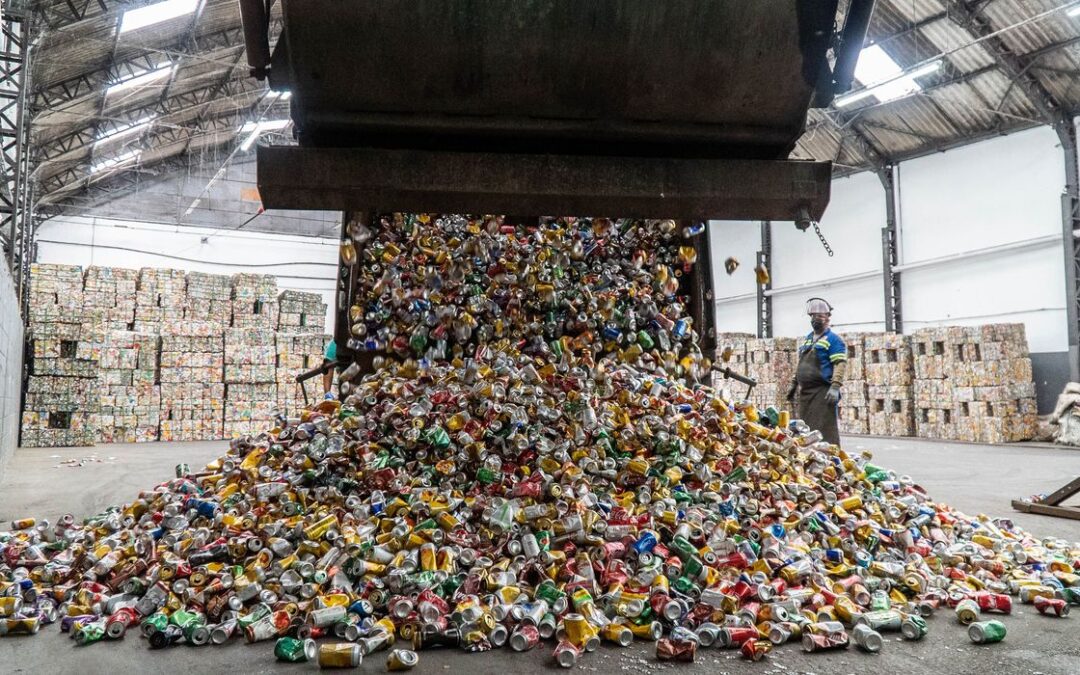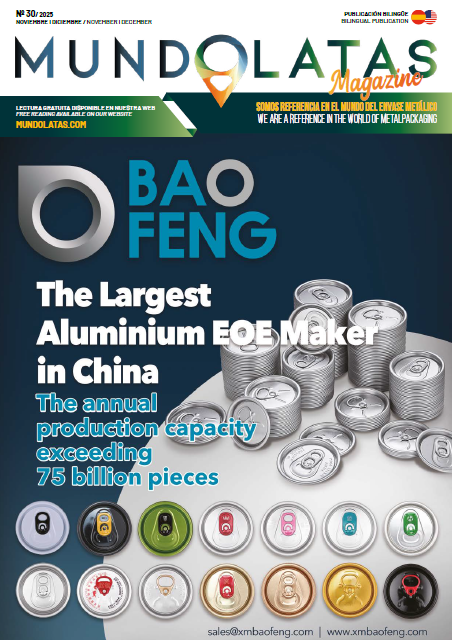A mother from the Canary Islands is collecting cans to finance a wheelchair for her daughter Daniela, who was diagnosed with a brain tumor when she was 15 months old. The girl has just turned six years old and needs change his wheelchair. The new one costs around 7,000 euros, so his mother, VeroGarcía, has started a campaign to collect aluminum cans -beer, soda, etc.- to be used for raise funds and be able to purchase it.
Like the collection of caps, the cans are paid for by the kilo. “Around 70 cans make a kilo of aluminum, which is around 35 to 40 cents,” says Vero, so if you calculate how many cans it would take to pay for the entire chair, the sum comes to 1.4 million cans. The mother of the little girl knows that “the money translates into very little” for each can, but she is grateful for the involvement shown by the citizens, from different murgas in the north of the island of Gran Canaria to different businesses that have joined as collection points for cans.
The chair costs 7,000 euros
Vero reports that after the disease, the girl has undergone several surgeries, but her current situation requires new needs: a personalized wheelchair, constant therapies, and the adaptation of the family car to be able to move her. All of this involves a large amount of money.
The chair is one of the main needs for Daniela to be comfortable, but “it is very expensive because it has to be customized and adapted to the needs of each child”. The approximate budget they have given the family for a custom-made chair for their daughter is 7,000 euros.
“The Seguridad Social gives an aid to be able to buy it,” Vero points out; however, is not enough, since for the previous one, the aid was 1,900 euros and, although welcome, it only represents a third of the total cost.
To this sum is added the cost of adapting the family vehicle, which amounts to another 8,000 euros, because it needs a ramp that allows access to Daniela in her chair, as well as therapies that help the progress of the little girl, because despite having the scholarships for special needs, “the annual budget of the therapist already takes the entire scholarship”.
Collection points for cans to contribute to the purchase of Daniela’s chair / AH
0.35 cents per each kilo of cans
The idea of collecting aluminum cans was born from Vero’s brother-in-law, who noticed the amount of discarded cans on the road and saw in them an opportunity to raise resources. “Aluminum cans, no matter how little they are worth, can help and it is also a benefit for the environment,” says Vero, who explains that each kilo of aluminum, which is equivalent to about 70 cans, sells for between 35 and 40 cents. “We won’t get rich from this, but it’s a symbolic help that adds up. I wish we could pay for everything we have to pay for just by collecting cans,” he jokes.
What started as a collection among family members and acquaintances has spread to many points of Gran Canaria. First the murga de los Nietos de SaryManchez, to which her brother-in-law belongs, joined in, and quickly the initiative has grown, and businesses and other murgas from the northern part of the island, as well as some from the areas of Las Palmas, Telde and the South, collaborate in the collection of cans for Daniela. Her mother is deeply grateful for the community’s response.
The family will be present at local events, such as the Halloween gathering in Guia, where they will collect cans from food and drink stands, following the example of a recent murga gathering where they managed to collect eight sacks full of cans.
The child needs the chair as soon as possible
Vero and her family hope to raise much of the money between now and December, because after a scheduled hip operation for their daughter, they need to have the chair as soon as possible. “The process of applying to Social Security is slow and can delay the arrival of the chair, but Daniela needs it as soon as possible,” she says. That is why they prefer to buy it directly and then “the Canary Health Service will pay us the amount of the aid”.
The current wheelchair has been used by Daniela for the past three years, but it is time to change it. “These chairs are usually adapted for two years at the most,” explains Daniela’s mother, since the child’s growth and constantly changing needs require a chair that adapts to her development.
Vero and her family will continue with this recycling and support initiative until the goal is achieved. With the response that people have had, they hope that the solidarity of the community will allow Daniela to













